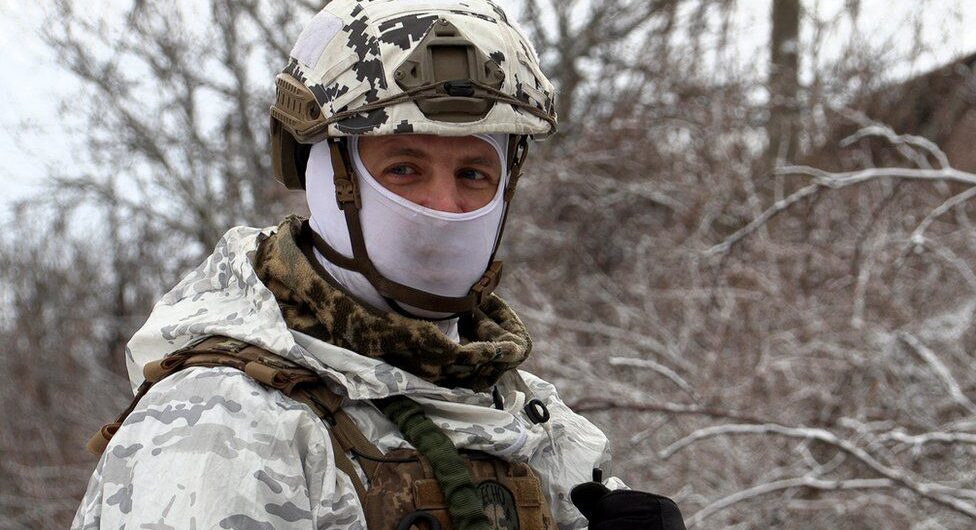The UK will not be able to fly British nationals out of Ukraine if Russia invades, Armed Forces Minister James Heappey has warned, according to the BBC.
He told the BBC the Royal Air Force would “not be in a position to go in” and people there should “leave now”.
Mr Heappey said the advice had changed because Russia was in a position where it could attack “at no notice”.
Russia has denied any plans to invade Ukraine despite massing more than 100,000 troops near the border.
On Friday, the UK Foreign Office warned British nationals in Ukraine to leave the country within 48 hours while commercial means were still available. A number of other countries have issued similar advice.
The US also said Russia could invade “any day now” and told its own citizens to leave – although it said the US did not know whether President Vladimir Putin had made a final decision.
Both French President Emmanuel Macron and US President Joe Biden are due to speak with Mr Putin on Saturday.
Moscow has accused Western countries of stirring up hysteria.
Following a call with world leaders on Friday, Prime Minister Boris Johnson said he feared for the security of Europe and urged allies to have a “heavy package of economic sanctions ready to go” should Russia attack, Downing Street confirmed.
Speaking to BBC Breakfast, Mr Heappey said: “We are now confident that the artillery systems, the missile systems and the combat air are all in place that would allow Russia to launch – at no notice – an attack on Ukraine.”
But he warned there would be “a big difference between what [people] may have seen on their TV screens in Afghanistan over the summer and what may happen over the next week or so” – referring to the international airlift to rescue people after the fall of Kabul to the Taliban last year.
“The Royal Air Force will not be in a position to go in and to fly people out so they need to leave now by commercial means or drive out of Ukraine into a neighbouring country,” he said.
British troops helping with training in Ukraine will also be leaving the country over the weekend, Mr Heappey added on BBC Radio 4’s Today programme. “There will be no troops in Ukraine if there’s going to be a conflict there.”
Some embassy staff are also being withdrawn but British ambassador to Ukraine, Melinda Simmons, said on Twitter: “I am staying in Kyiv and continue to work there with a core team. The embassy remains operational.”
‘More and more threats’
Stuart McKenzie, a British man who has lived in the country for 28 years with his Ukrainian wife and children, told BBC Breakfast he was considering options for leaving.
“Any parent wouldn’t want to put their children into any danger whatsoever,” he said. “There seem to be more and more threats, and we hear as soon as next week we could have Russian troops in the country.”
Mr McKenzie is considering driving to the border with Poland but said he was concerned about access to fuel, food, hotels, and cashpoints, as well as the poor weather conditions on the roads.
“These things can get out of control very fast and we’ve got to be on the right side of the chaos, to think of a border with a million cars and panic happening would be disastrous,” he said.
He also requested that the government open a hotline to give people practical advice on travel options.
Former British ambassador to the US Lord Kim Darroch said embassy and Foreign Office staff would be working around the clock to make sure the thousands of British people in Ukraine were aware of the advice to leave.
“It will overwhelm the embassy’s resources, you can’t assume all the Brits in the country will hear this so you have to contact them,” he told the Today programme.
“You may have to arrange an emergency telephone line, you’ll need to send people to the airport where, with lots of foreign nationals trying to get out, there will be chaos. There may need to be extra flights laid on so this will occupy everyone’s time for 24 hours a day for the next few days and you won’t get everyone out – some people will choose to stay.”
‘Talks continue’
Meanwhile, Tobias Ellwood, Conservative MP and chair of the defence select committee raised concerns about the rhetoric being used by Washington.
He told BBC’s Newsnight: “Absolutely, you’ve got a duty of care to your citizens, particularly when the threat picture does change.
“But it’s almost bordering on panic and that absolutely fits into Putin’s objective. He’ll be delighted to see the West and the Nato alliance crumbling in this way.”
Nato’s 30 members – which include the UK, US and several former Soviet republics – agree to come to another’s aid in the event of an armed attack.
Ukraine is not a member of Nato. However, it is a “partner country” and may be allowed to join the military alliance sometime in the future, a move Russia sees as a direct threat to its security.
On Friday, Defence Secretary Ben Wallace met his Russian counterpart Sergei Shogiu, who he said had given him security assurances.
Mr Heappey also reiterated that diplomatic lines were still being pursued.
He told BBC Breakfast: “Clearly the only route to a peaceful outcome is if talks continue, and I think if talks continue there has to be a willingness to believe what each side says to each other.”




